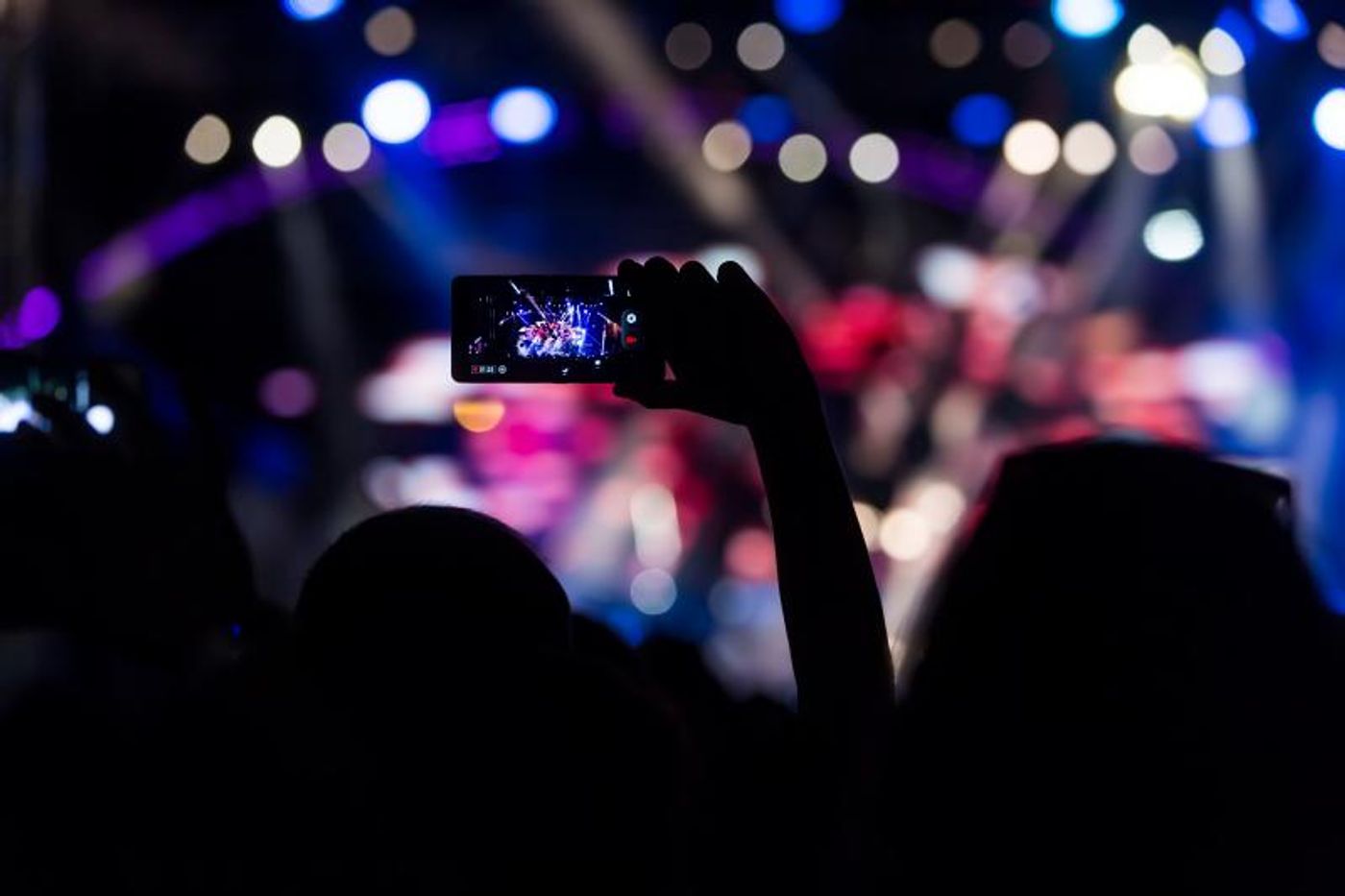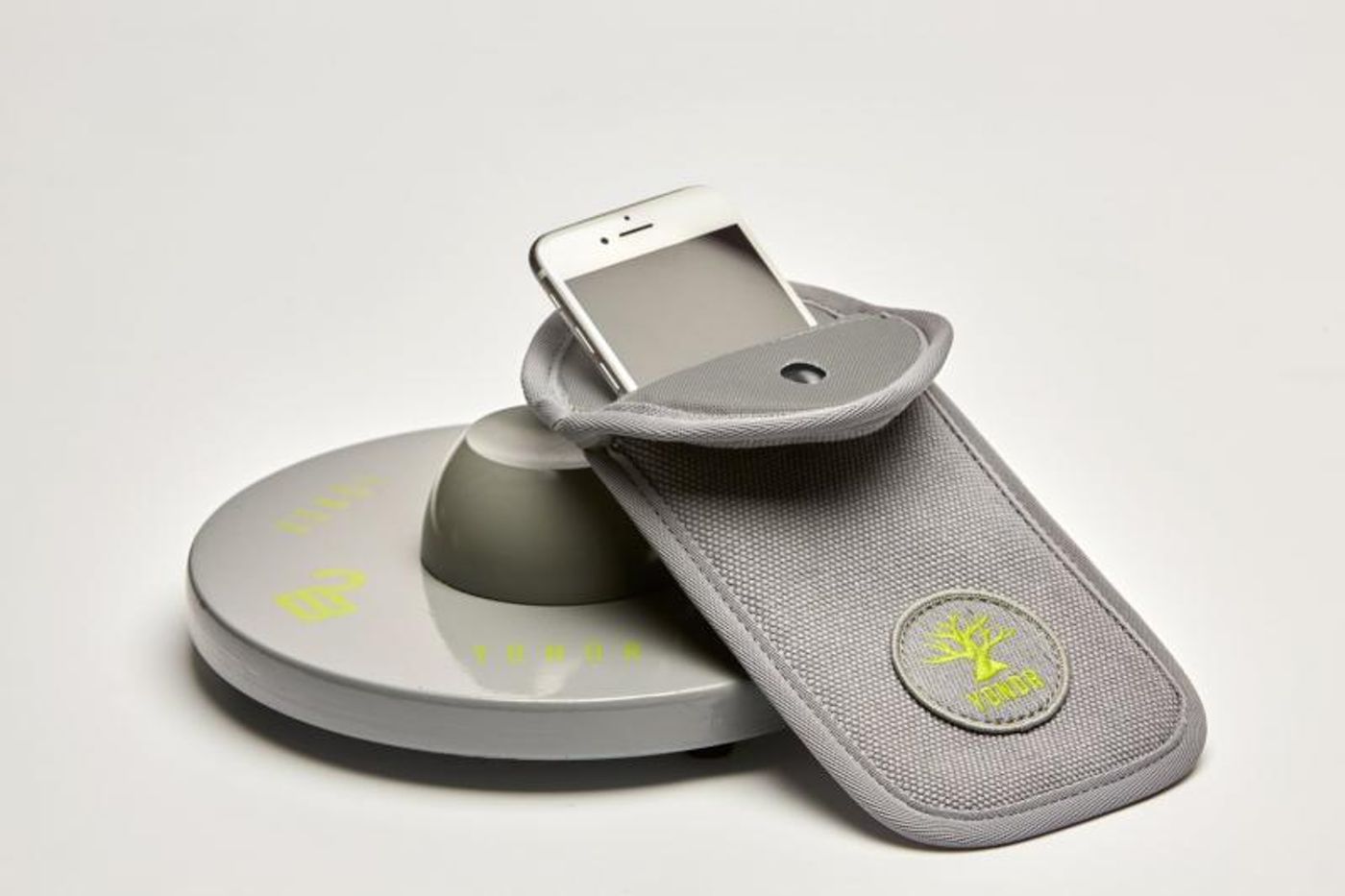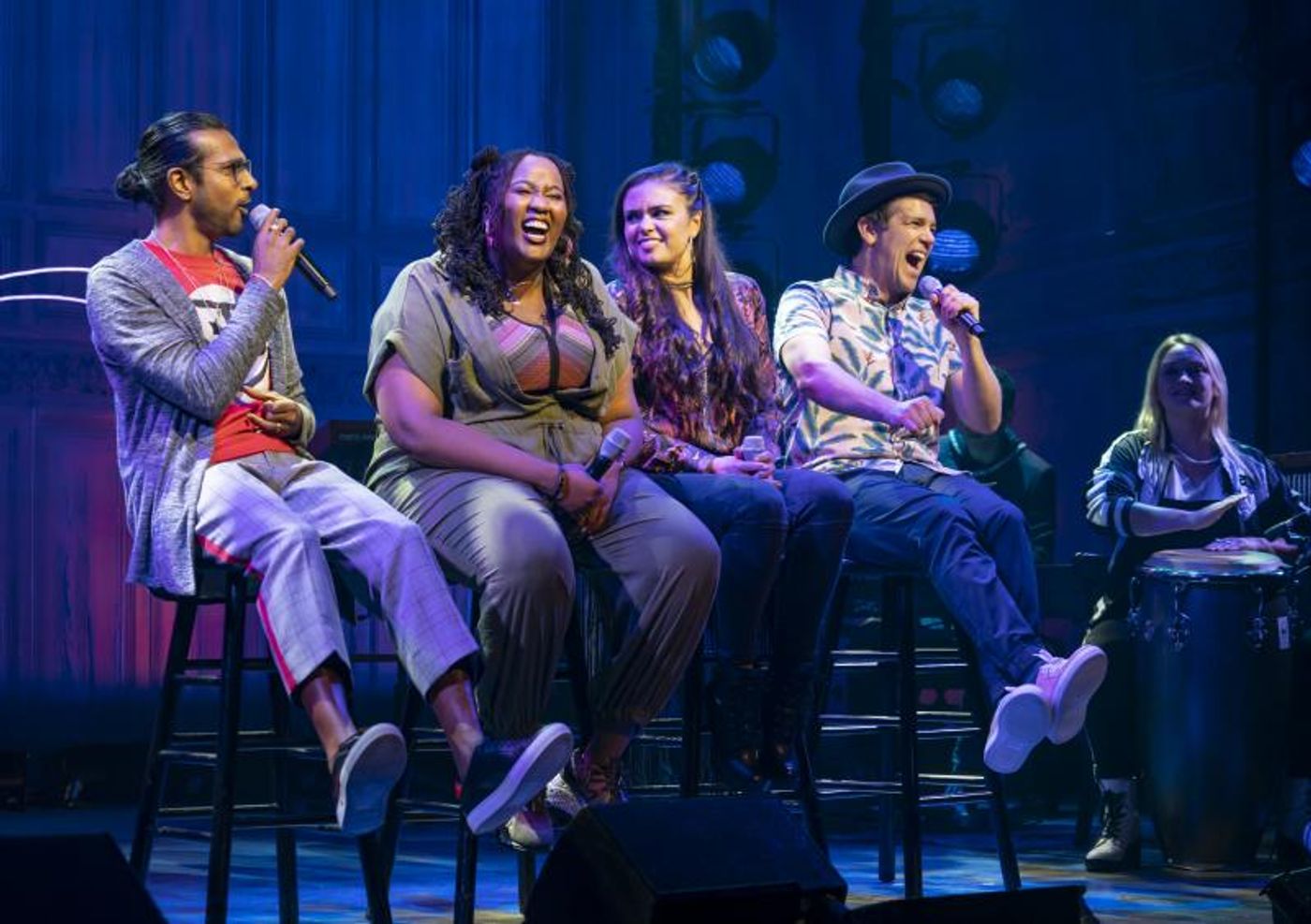Industry Editor Exclusive: The Evolution of Cell Phones Use at the Theater (And What to Do About It)
Years ago, when the popularity of cell phones started exploding, theaters in other countries started experimenting with the idea of using signal jammers to prevent cell phone use in the theater. It never took off. And more and more people started using cell phones in the theater. There is the photo before, the texting during, the random cell phone ring and sometimes the recording of the performance. Most of it is not supposed to occur. We've all heard stories about performers stopping the show until phones are put away. But some wonder what can be done to stop it or even if it should be stopped entirely.
SLAVE PLAY playwright Jeremy O. Harris got a little bashed on social media after he tweeted about a text he received during his intermissionless show from audience member Rihanna. In his defense, he tweeted: "I've seen too many 'general audience members' do it over the last decade to care about it. I'm more interested in theatre evolving and maybe phones are part of that evolution? Who knows." Then he followed up with: "IDK. There's no right or wrong way to watch the theatre....the form is dying so I'd rather ppl just be there then not tbqh." ("TBQH" means "to be quite honest," for my readers who don't use texting acronyms.)

Many disagreed. For purists, the way to watch theater is not while texting, unless the show specifically calls for it. (The defense that theater used to be a rowdy affair back in the day falls flat with most, who distinguish a loud cheer from a bright text.) People complain about the noise, and just as importantly, the light generated by a digital display. And, of course, there is the risk that a cell phone will be used to record a performance.
"I've heard the theory that theatre needs to 'keep up with the times' and that's why technology should be allowed in the audience without any rules, etc. but I disagree," said Broadway veteran and CRAZY EX-GIRLFRIEND star Donna Lynne Champlin. "Unless the piece itself specifically calls for electronic interaction via cell phones, etc. the theatre should be a protected space, an escape from the outside world, free from distraction (for both the audience and the actors) and creative theft."
Most shows have announcements, either via usher or overhead voice, asking audience members to turn their phones off (or at least switch them to silent) and put them away before the performance begins. But it doesn't always work. Those artists and producers who are not Jeremy O. Harris--who are strongly against cell phone use during a theatrical show--have been left wondering how to stop people from using their phones during a performance. During David Copperfield's magic show in Las Vegas, he encourages cell phone use during his first illusion, but then requires patrons to put their phones in a table top black box. Some very small regional theaters have used a cell phone ticketing system, where a patron checks their cell phone the same as a coat, and at the end of the night must pick it up. And then there is Yondr, the most popular of the options.
Yondr promises to "create[] phone-free spaces for artists, educators, organizations and individuals." Basically it is a pouch system. An audience member needs to turn their phone off or to silent and lock it in a pouch. The pouch stays in your possession throughout the performance. At the end of the night, your phone is quickly unlocked via a special patented Yondr base. Comedians have been using the pouches for years. And musical performers have started using the technology. (SLAVE PLAY offender Rihanna is one Yondr adopter.)
 So it's not a surprise the theater is catching on. Adam Hess, Executive General Manager of the Daryl Roth Theater, was introduced to the technology when a comedian came to his theater. Hannah Gadsby had been using Yondr technology on the tour for her show DOUGLAS and wanted to use it during the show's run at the Daryl Roth. The theater staff learned about it and set about making it work. Audience members were alerted both at the time of purchase and via an email that went out in advance of the performance.
So it's not a surprise the theater is catching on. Adam Hess, Executive General Manager of the Daryl Roth Theater, was introduced to the technology when a comedian came to his theater. Hannah Gadsby had been using Yondr technology on the tour for her show DOUGLAS and wanted to use it during the show's run at the Daryl Roth. The theater staff learned about it and set about making it work. Audience members were alerted both at the time of purchase and via an email that went out in advance of the performance.
"We were bracing for a storm in terms of the audience, and, I have to say, I was shocked at how cooperative audiences were," Hess said. He could only recall one woman who was really set against putting her phone away.
"I think the big thing is the fact that you still hold your phone," he explained.
Anthony Veneziale, a founding member of FREESTYLE LOVE SUPREME, was introduced to the technology not at a show, but because he shared a workspace with Yondr in San Francisco. Knowing he knew Lin Manual-Miranda, the Yondr folks approached Veneziale about three years ago regarding possibly having their pouches at HAMILTON. Fast forward to 2019--the pouches are still not in use at the Richard Rodgers Theatre, but FREESTYLE LOVE SUPREME just became the second Broadway show to use Yondr (following the Dave Chappelle limited engagement that occurred earlier this year).
"We started this off-Broadway in response to a dialogue around the question: 'How do we help people be present and be in the moment? Improv requires a fair amount of attention and interaction," said Veneziale.

Veneziale said in his mind the primary issue was finding a way to ensure audience members were "listening deeply" to the show without distractions, but a secondary issue was also protecting the content created on stage every night. Introducing Yondr helps with both.
Still, not everyone is in favor of using the technology for Broadway shows. Many wondered if the community should still be embracing cell phone use in some form, as it began to when free Wi-Fi was introduced in many theaters.
"I think if you are barring people who have this tool in their pocket and are living their lives online digitally, you are cutting off your nose to spite your face in how word of mouth now works," said SLAVA'S SNOWSHOW producer David Carpenter, who noted that, because of logistics, phones must be put away in Yondr pouches prior to a patron sitting. "Broadway needs every single possible tool in our arsenal to sell tickets and continue to perpetuate our brands. All our friends take pictures of Playbills and that is just free advertising for shows. Why cut that out?"
Others spoken to worry that it will be a deterrent to ticket buyers. For example, people with children might be less likely to attend the theater if they believe they cannot be contacted in the case of an emergency.
There are also other things to consider for those that want to utilize the technology. There is a cost, which most place at around $2 a head. Additional staff is needed--at the Booth, Yondr reps ask each person entering a row about their phones, hand the pouch over and, at the end, manage the bases required to unlock the bags. Most theaters create paper ticket stubs on site when audience members have digital tickets, thus enabling patrons to verify seat locations without their phones.
And then there are the exceptions to think about. At the Daryl Roth for DOUGLAS, medical exceptions were allowed, so if you had a hearing aid tied to a cell phone app, you did not need to put your cell phone away. At FREESTYLE LOVE SUPREME, there are absolutely no exceptions. So if you need your phone to control your cochlear implants, do not attend. If there is a true need for a phone to be on vibrate, that is allowed, and, if a phone does vibrate, the owner is permitted to leave his/her seat, have the phone unlocked, handle whatever the situation is, and return to his/her seat with the phone safely relocked.
According to Veneziale, it has all been working smoothly and there have been limited interruptions. They've done drills and, in the case of an actual emergency, it only takes about three minutes to unlock the cell phones of an entire theater of people.
Others have had worse times. A couple of people spoken to for this piece reported being at shows where cell phones have rung despite the Yondr system. After all, you are on the honor system. If you say you left your phone at home, no one checks. If you say it is off or on silent before it enters the pouch, you are believed.
Hess did not have any major horror stories and said he'd consider recommending it to other shows that come to the Daryl Roth, though maybe not big musicals. "To me, I'd do it for the quieter shows," he explained. "I see the intimacy of certain shows and I know how important it is to keep that experience to the venue as opposed to online."
And Hess isn't alone in thinking one size does not fit all. Most spoken to for this piece said there are shows where the pros of having a cell phone accessible outweigh the cons, but for many it is not necessarily a musical/play split.
Alex Brightman, the Tony-nominated star of the loud and splashy BEETLEJUICE, said he hasn't heard a lot of phones ringing while onstage, but he still believes Yondr pouches or similar are now "necessary" at Broadway theaters. "What is frustrating is that there is a growing epidemic of people filming the show and taking pictures at their whim," he said. "We've even had people FaceTiming their friends in different states so their friend could watch the show from the comfort of their own home. Theatre etiquette is thrown completely out the window when you decide to take your phone out and do anything with it. It's distracting. It's a shiny object that catches light. And it causes our performances to suffer when we see them in the crowd. And we can see them. Everyone thinks they're being slick, but they're not. Aside from the fact that it's completely illegal to record a show, it honestly takes the 'live' out of 'live theatre,' and it's one of the worst ways to experience a show."
Videos


